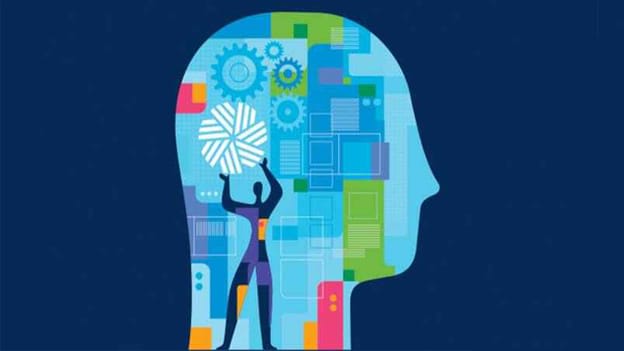Upskilling and reskilling: Need of the hour to keep up with the fast-paced digital transformation

COVID-19 – An opportunity in disguise
Are we on the brink of a new world? COVID-19 has thrown a daunting yet pertinent challenge upon the corporate landscape – an expedited digital transformation timeline for all, irrespective of their current capabilities. We’ve seen unprecedented scenarios emerge with prolonged remote working conditions, professional and personal virtual collaboration and challenges that on-demand food and services businesses faced during this crisis. With technology being rapidly integrated into every facet of our lives, we will step into a completely new digital landscape post COVID-19 with technologies such as AI, Machine Learning, Robotics, IoT dominating our daily lives.
The primary need for businesses that has shone through this pandemic is to accelerate their digital transformation efforts.
And how do we enable that? A digitally agile workforce with a growth mindset is the answer.
As we step into this new normal of a hyper-digital world, investing in employee reskilling and upskilling will give companies big returns. Employees too, including new grads and mid-level managers, are looking for a sharp growth curve and the skills that they learned in colleges or on the job are not wholly relevant to the changing tech landscape. According to a study by McKinsey Global Institute, nearly 375 million workers globally will need to upskill by 2030.
Hitting the bull’s eye
Now that we have established the need to reskill and upskill, let’s look at how we can achieve this target.
For organizations, it is vital to act swiftly. First comes the need to identify the talent that can be upskilled quickly, followed by building a company-wide strong foundation of data-savvy workforce. Emerging trends such as AI, IoT, Robotics, Machine Learning and Blockchain need a digitally strong workforce that can lead the data-driven transformation.
For employees it is crucial to identify the gaps in their skillset. An easy way is to list down the core technical skills and soft skills. Compare these with the skills in demand and build upon the ones that are most relevant. Keep this list sacrosanct and revisit periodically.
- Organizational training: Focus on the critical transferable skills that may give you a foot in the door for your next horizontal move in the company. Reach out to your peers for new learning opportunities. For instance, if someone needs to move from core technology research into product development for Cloud Business Unit, NetApp gives them the flexibility and resources for self-paced learning through our online learning portal.
- Independent learning: Easy access to the near-infinite online resources to learn and credible certifications from portals such as Coursera, UpGrad and other MOOCs have made it easy for employees to keep up with the skills of the future.
Unique learning approach for Gen Z: Personalization is important when considering the varied learning needs of this young group. Gamification as an extension of corporate training programs can be fruitful by virtue of it being more interactive and engaging.
New organizational culture on the horizon
Gartner predicts 70% of organizations will integrate AI to assist employee productivity by 2021. Thus, there’s an imminent need to focus on future skills and talent management. The onus lies on employees to proactively scout for upskilling and reskilling avenues in order to remain productive. For a greater unity of purpose, organizations must also enable their workforce to seek learning and development opportunities within their teams. According to a McKinsey survey, data-driven organizations are 23 times more likely to acquire customers, six times as likely to retain customers and 10 times as likely to be profitable. Talent being the heart of every organization, businesses have to enhance their workforce’s capabilities for transforming themselves into data-driven enterprises fueled by innovation. And the current crisis has given us an opportunity in disguise to encourage socially distanced employees to develop a digital mindset and gain skills that can become a part of the organization’s culture and experience.
















